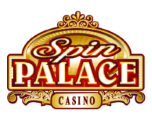Playing casino games online has its risks, so it's important you stay safe. Always read the terms and conditions of any site you use, use strong passwords, and always log out when you leave the site.
Understanding Problem Gambling
Gambling could be considered an Australian pastime and a recreational activity enjoyed by millions of people around the globe. For many, it's an inexpensive, and potentially profitable, way to pass time while having fun. But, for a small percentage of players, gambling can be compulsive and lead to various problems similar to that of a substance addiction. Problem gambling, also known as a gambling addiction, gambling disorder, or habitual gambling, is said to affect between 2 and 3% of the gambling population. Without getting help, it could seriously impact a person's life which is why it's important to educate yourself about problem gambling and its signs.
What is Problem Gambling?
Problem gambling is considered to be a mental health disorder which could cause an extreme urge to gamble despite any harmful negative consequences. It can affect people of all ages, cultures, backgrounds, and income groups. Some people may develop a problem over the course of many years or very rapidly. For instance, a gambler may start to experience problem gambling when trying to win back losses and others may strive to always be "in the action".
Signs of Problem Gambling
Problem gambling can be difficult to detect. Many people don’t actually recognize it in themselves, but rather have it addressed to them by a family member or friend. Some of the most common signs of problem gambling can be broken down into financial, mood or behavioural changes such as:
Financial Signs
- Missing money from a wallet, purse, or bank account
- Missing household or valuable items
- Frequent need to borrow money
- Taking out multiple loans
- Neglecting important bills
- Being secretive about finances
Mood & Behavioural Signs
- Becoming withdrawn
- Decrease in work performance
- Appearing worried or agitated for no apparent reason
- Feeling depressed, hopeless, or suicidal
- Changes in sleeping or eating patterns
- Manipulating behaviour
Other Signs
- Spending more & more time at casinos
- Being secretive about gambling
- Showing up late to commitments
- Taking excessive amounts of time off work
Many of the aforementioned signs may be rationalized by the gambler themselves; thereby, masking the issue. The following are some direct actions a potential problem gambler may partake in:
- Chasing losses
- Constantly thinks about gambling
- Feels an urge to increase bet sizes to sustain the thrill
- Feel agitated when forced to cut back
- Gambles as an escape
- Lies about gambling
- Engages in illegal activity to finance bets
- Jeopardizes relationships to gamble
- Is in debt because of gambling
- Trying to stop, but is unable to
You do not have to show any or all of these signs to be a problem gambler. However, because the term ‘problem gambler’ can be loosely defined, anyone who exhibits such symptoms may wish to examine their activity to better assess their own circumstances. To make an accurate diagnosis, it’s advisable to seek out the assistance of a counsellor or professional who can talk to you about the situation. Rest assured problem gambling can be overcome.
Support for Problem Gambling
Whether you’re a problem gambler, or the family member of one, Australia offers free and confidential professional counselling services. Available online and locally, these caring, supportive people can walk you through the process of getting help. Call 1800 858 858 or visit http://www.gamblinghelponline.org.au/.
Other Resources for Problem Gambling
In addition to the local Australian helpline, there are plenty of other resources available to people looking for assistance. Some organizations which can discuss treatment options and further information include:
Gamblers Anonymous (http://gaaustralia.org.au/) - Anonymous support group for any problem gambler.
Gam-Anon (http://www.gam-anon.org/) – For the families or close friends of problem gamblers.
Mission Australia (http://www.missionaustralia.com.au/) - An organization which offers free services to problem gamblers and their families.
The National Council on Problem Gambling (http://www.ncpgambling.org) – Resourceful site, based in the U.S. for information on problem gambling.
GamCare (http://www.gamcare.org.uk/) – An industry-funded charity that offers n counselling and guidance for problem gamblers in the United Kingdom.
Help is Available
When it comes to problem gambling, you are not alone. With the advent of the internet and copious amounts of effective treatment options, you can resolve your issues or problems associated with gambling. No matter how you get help, remember that there have been others in the same situation and, with some effort and support, they turned things around for the better.
Related pages
Learn more about pokies online below
